I’ve been watching the Hellobike bike shares filter throughout Zhoukou this past week. I wish I had access to a web page that would track their gps chips because it would be interesting to see how they’ve spread out. From a few masses totaling maybe a thousand bikes in the area surrounding campus, I’ve seen them spread to the edges of the city. They’ve reached almost into the countryside east, and on the industrial ring road to the west. There is a technical college that has some, and Zhoukou park has many, though you have to lift them over a low barrier designed to keep scooters out, and some have complained they’re heavy.
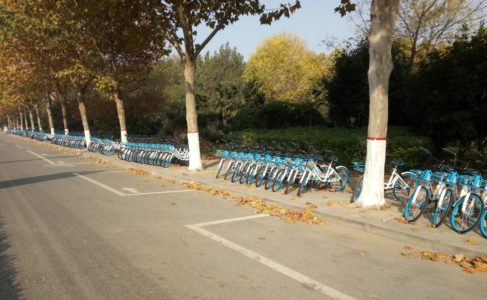
The municipal government plaza by the museum has them and those would have been extremely useful when I took my students there a couple of weeks ago. They have spread downtown and to the new riverside park, the perfect place for them, though the students don’t seem to have discovered that park yet. The strange part to me is why they are left where they are sometimes. I’ve seen them abandoned along the road in the middle of nowhere. Did someone stop and give them a ride? Is someone around coming back to it? The tires are solid rubber, so they don’t have flats.
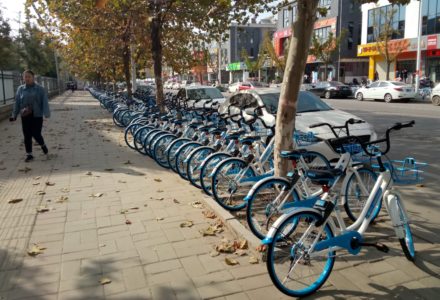
Our student friend “Lily” went on a ride with us Sunday morning. The first two she tried to use outside the campus gate didn’t unlock when she scanned them, and there were only four in the vicinity. She has her own bike on campus but preferred to use the bike share. I don’t know if the scarcity of bikes where there had been hundreds before had anything to do with the marathon happening that day or not. I think it’s just the most popular place to pick up a bike.
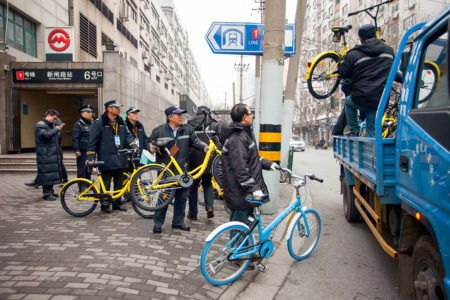
Bike share expansion is red-hot right now in China, with lots of investment from the tech industry and venture capital. Hellobike just merged with Youon, the oldest docked bike share, to compete better with Ofo and Mobike, who have 90% of the market in the large cities like Beijing and Shanghai. Those markets are saturated and the smaller companies have been forced to look at the third, fourth, and fifth tiered cities. (Zhoukou may be 5th tier) There are already 1.5 million share bikes on the street in Shanghai and the municipal government has decreed those numbers must not be added to. Hellobike in comparison has only has about 700,000 bikes in 16 cities in China, 11 million users and 3 million daily rentals.
Ofo and Mobike plan to expand to 200 cities worldwide by the end of this year.
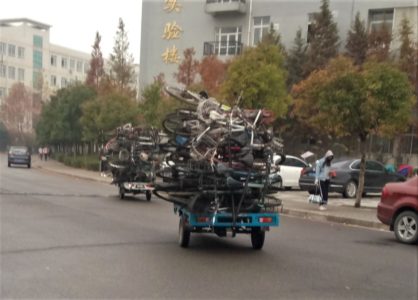
I don’t know what kind of maintenance they have. With those numbers they must depend on users to report bad bikes on the app. If one is not operational, the user is also supposed to turn the seat backward to alert other riders it’s out of service. There has been some sabotage. Possibly between bike companies, from the illegal scooter taxis that carry people, or security guards who don’t like them left in front of their buildings. QR codes have been scratched off, seats gone missing, and piles of bikes found dumped.
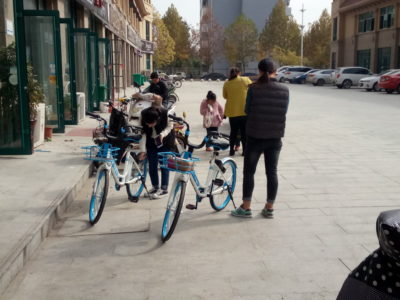
Bicycle usage fell through the floor in China after highs of 60% usage by the population in the 1980’s. With the push towards modernization everyone wanted a car, and bicycles were seen as backward. That’s not the case now with most bike share users in their 20’s and 30’s. The environmental and monetary costs of driving a car as well as city congestion are helping turn things around. In this regard I hope the U.S. can follow China’s example.
